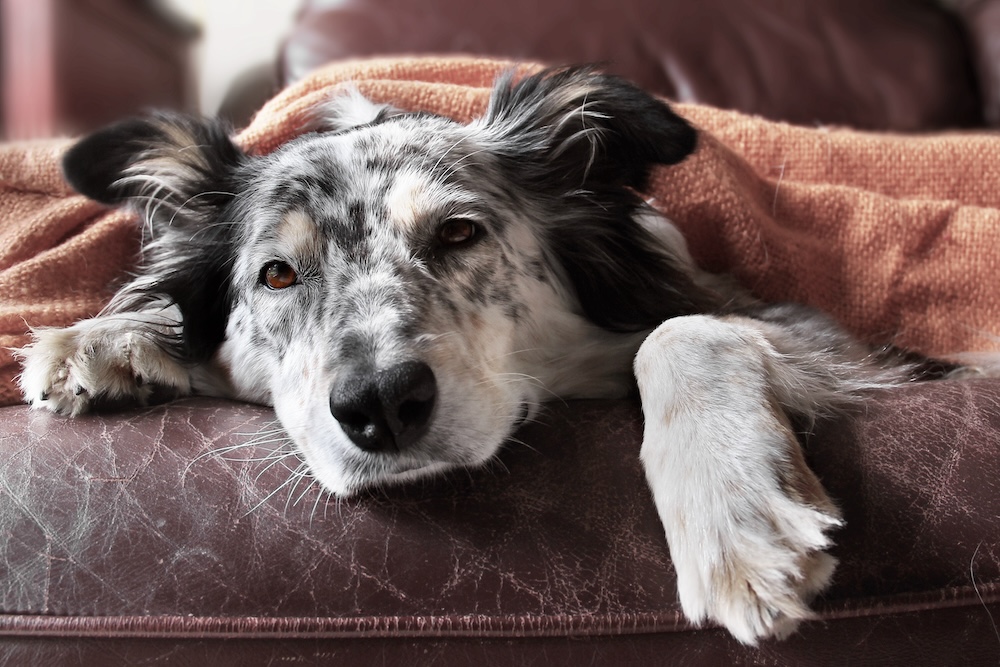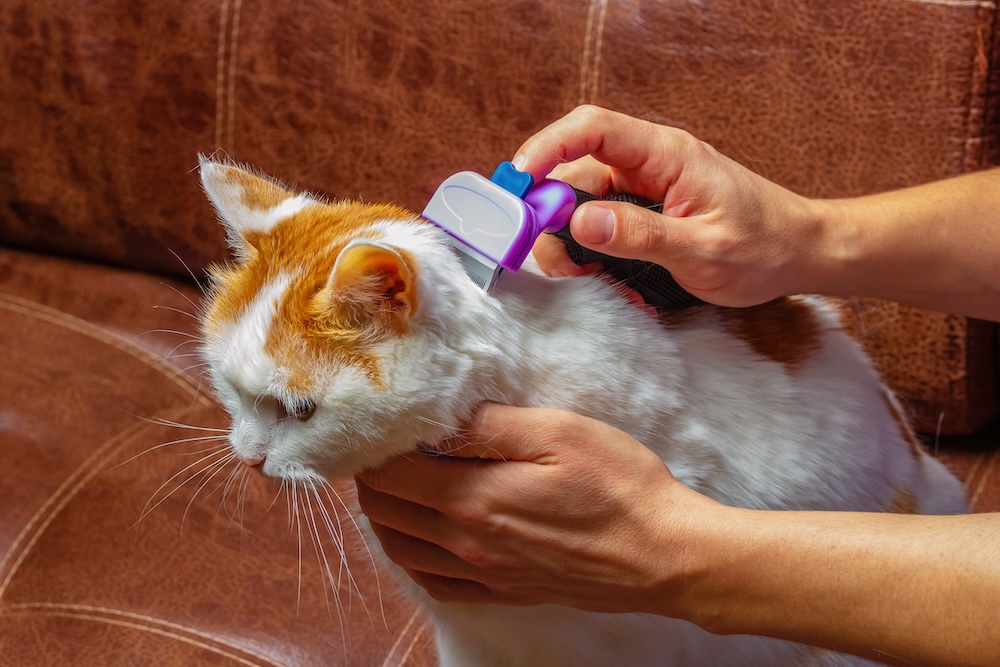At Faithful Friends Veterinary Clinic, we understand how alarming it can be to find out that your dog has ringworm. Despite the misleading name, ringworm is not caused by a worm but by a fungal infection that can impact the skin, hair, and nails of dogs, and it can even spread to humans and other animals. Understanding the signs of this condition and knowing the most effective options for ringworm treatment for dogs is essential in managing and eliminating this contagious infection. In this article, we’ll delve into what ringworm is, how it spreads, and the best treatment strategies to protect your dog’s health and well-being.
What is Ringworm?
Ringworm is a common fungal infection that affects the skin, hair, and nails. Despite its name, ringworm is not caused by a worm but by a group of fungi known as dermatophytes. These fungi thrive in warm, moist environments and feed on keratin, a protein found in the skin, hair, and nails.
The infection typically appears as circular, hairless patches on the dog’s skin that may be red, scaly, or crusty. The name “ringworm” comes from the ring-like appearance that the lesions can form. However, in some cases, the patches may not have a distinct ring shape.
Ringworm is highly contagious and can spread not only between dogs but also to other animals and humans through direct contact with an infected animal or contaminated objects, such as bedding, grooming tools, or even furniture. While ringworm is often more of an annoyance than a severe health issue, it can cause discomfort for your dog and, if left untreated, can spread widely and be difficult to eradicate. Therefore, prompt diagnosis and treatment are essential in managing this condition.
Signs and Symptoms of Ringworm in Dogs
Recognizing the signs of ringworm is the first step in seeking treatment. Symptoms can vary but commonly include:
- Circular Patches of Hair Loss: One of the hallmark signs of ringworm is the appearance of circular or irregularly shaped patches of hair loss. The skin in these areas may be red, scaly, and inflamed.
- Itching and Scratching: Although ringworm is not typically very itchy, some dogs may scratch or bite at the affected areas, leading to further irritation and potential secondary infections.
- Crusty or Scabby Skin: In more severe cases, the infected areas can develop crusty lesions or scabs. The skin may also appear thickened or raised.
- Brittle or Deformed Nails: If the fungus infects the nails, they may become brittle, cracked, or deformed.
It’s important to note that some dogs may be carriers of ringworm without showing any symptoms. This makes it crucial to have a veterinarian examine your dog if you suspect they’ve been exposed to ringworm, especially if you or other pets in your household develop similar skin issues.
Diagnosing Ringworm
If you suspect your dog has ringworm, a visit to Faithful Friends Veterinary Clinic is essential for a proper diagnosis. Several diagnostic methods may be used:
- Wood’s Lamp Examination: A Wood’s lamp, which emits ultraviolet light, may be used to examine your dog’s skin. Some types of ringworm fluoresce under this light, making it easier to identify.
- Microscopic Examination: Your veterinarian may take skin scrapings or pluck hairs from the affected area to examine under a microscope. This helps to identify the fungal spores.
- Fungal Culture: The most definitive method for diagnosing ringworm is a fungal culture. A sample of hair or skin is placed in a specialized medium to see if the fungus grows. This test may take several days to weeks for accurate results.
Ringworm Treatment for Dogs
Once ringworm is diagnosed, prompt treatment is necessary to prevent the spread of the infection and to speed up your dog’s recovery. Treatment typically involves a combination of topical, oral, and environmental measures.
Topical Treatments
Topical antifungal treatments are commonly used to treat localized cases of ringworm. These treatments may include:
- Antifungal Creams or Ointments: Applied directly to the affected areas, these medications help to kill the fungus and soothe irritated skin.
- Medicated Shampoos: Bathing your dog with a medicated antifungal shampoo can help treat widespread infections and prevent the spread of ringworm. These shampoos should be used as directed by your veterinarian, often on a regular schedule.
- Lime Sulfur Dips: For more severe cases, your veterinarian may recommend lime sulfur dips. While effective, this treatment can be messy and has a strong odor, so it’s important to follow your vet’s instructions carefully.
Oral Medications
In cases where the ringworm infection is widespread or persistent, oral antifungal medications may be prescribed. These medications work from the inside out, targeting the infection systemically. Common oral antifungal drugs include itraconazole and terbinafine. It’s important to administer these medications exactly as prescribed and to complete the full course, even if your dog’s symptoms appear to improve.
Environmental Decontamination
Because ringworm spores can survive in the environment for months, thorough cleaning and disinfection of your home are crucial to prevent reinfection. Here are some tips for effective decontamination:
- Vacuum Regularly: Vacuum carpets, furniture, and any areas where your dog spends time. Dispose of the vacuum bag or empty the canister immediately to avoid spreading spores.
- Wash Bedding and Toys: Launder your dog’s bedding, blankets, and soft toys in hot water and a pet-safe detergent. Consider using bleach in the wash if possible.
- Disinfect Surfaces: Clean and disinfect hard surfaces, such as floors, countertops, and grooming tools, with a solution of bleach and water (diluted according to your veterinarian’s recommendations).
- Limit Contact: Keep your infected dog isolated from other pets and household members as much as possible during treatment to prevent the spread of ringworm.
Preventing Ringworm Recurrence
Preventing a recurrence of ringworm involves maintaining a clean environment and regular monitoring of your dog’s health. Some preventive measures include:
- Regular Grooming: Keep your dog’s coat clean and well-groomed to reduce the risk of fungal infections. Regular grooming also allows you to check for any signs of skin issues early on.
- Prompt Treatment of Skin Conditions: Address any skin conditions, injuries, or parasitic infestations promptly, as these can compromise your dog’s skin barrier and make them more susceptible to ringworm.
- Maintain Good Hygiene: Wash your hands thoroughly after handling your dog or cleaning their living area, especially if they’ve been diagnosed with ringworm.
Seek a Vet for Advice
Ringworm is a common but treatable condition in dogs that requires prompt attention to prevent its spread and ensure a full recovery. At Faithful Friends Veterinary Clinic, we are dedicated to helping you manage your dog’s ringworm infection with effective treatments and comprehensive care. If you suspect your dog has ringworm or if you have any concerns about their skin health, don’t hesitate to contact us. Together, we can ensure your dog stays healthy, happy, and free from infections like ringworm.




